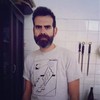
Advertisement

Carlos Pobes: Well, it turns out that the universe is so kind that, just to keep physicists in a job, it sends us a whole bunch of invisible particles that are apparently useless. One of these types is the neutron. Neutrons are fundamental to our understanding of how the universe works on a smaller scale, and they provide fundamental information that helps us resolve mysteries like the origin of high-energy cosmic rays or the nature of dark matter. Although it may seem hard to believe, humans also produce neutrons. The problem is that as particles go, neutrons are pretty sneaky; they can travel right through the earth without bumping into anything. The only way to catch one is to build a big enough "trap."

Advertisement

Strange. There wasn't a moment where I thought it wasn't a lost cause, so I went all out on the cover letter and didn’t think twice about it. But I guess they liked that. Also, since you don't really know what you're getting yourself into, you try to make it so that the person who is selecting you knows you well so that if they pick you it will be because they think you can do it. That was the best part. Normally in a selection process you try to hide your weaknesses, but I was the first person they met who was genuinely interested in the project. You don't want to get to Antarctica and suddenly find out it's not for you!

Ha, People said that to me all the time to me before I started the training in the US, asking if they were going to put me in a fridge. But oddly they didn't give us any specific training for the cold. The only specific training (apart from what was needed to conduct the experiment) had to do with fire management and first aid. And personally, I haven't been working out or anything, although I do like running in the mountains.

Definitely not. Well, I suppose that if you had to get there by walking, then yes, but for the rest of us it's enough to not be scared of flying. The truth is that most of the people here don't run marathons, they're normal people. The only requirement is to be minimally healthy. Well, and to be crazy enough to want to go, but not crazy enough to turn it into the Overlook hotel in The Shining. The better a sense of humor you have, the better off you’ll be.
Advertisement


I don't think I've had a normal day, but bit by bit you start to define a routine. The meals are self-service with certain schedules, and everyone adapts to what works for them. So far we've spent most of the days learning all the intricacies of the experiment and other types of training. I'm in the fire safety brigade, for example, and we have a session every week. After dinner people watch movies, play football, basketball, or volleyball, go to dance lessons, or practice in the music room. When I find myself with some extra time, I run on the treadmill or outside. As far as hygiene, we are allowed two two-minute showers a week. Since I run three days a week, I've managed to distribute those 4 minutes into three showers. But realistically, with normal activities, you sweat very little because the relative humidity inside the station is less than 10%. Which means we all have very dry hands. We also have to carry a radio with us during the entire day. Aside from using it for general news, if the experiment has some type of serious problem an alarm is sent to your radio no matter what time it is and you have to respond. Basically the experiment is like a big Tamagotchi.

There is an incredible atmosphere around here. People send boxes with things, and the majority of the contents aren't necessary for survival. There's also a room for arts and crafts and a studio, so what we don't have, we make. We organize, for example, a film festival and people make amazing things. And in the "Around the World" race on Christmas day people also run in costumes. It's amazing.

To be honest, my love life is exactly the same as it was in Spain. Which was absolutely none. But as far as hooking up, people hook up. I can tell you that in every bathroom in the base there is a basket with free condoms that needs to be refilled every so often. There's a saying: "What happens in the South Pole stays in the South Pole."
